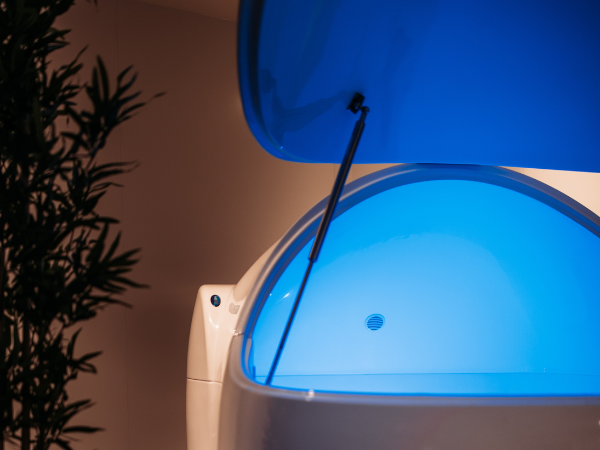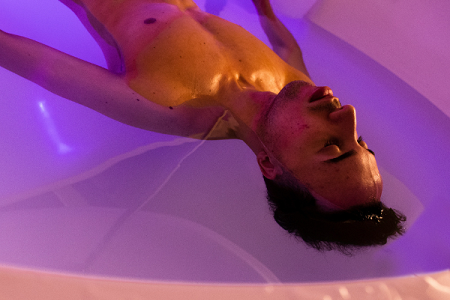Holistic Healing: Managing Muscle and Chronic Pain Through Regular Floatation Therapy
In our fast-paced world, chronic pain has become an all too common companion for many. Whether it’s muscle aches from strenuous workouts or persistent discomfort due to conditions like fibromyalgia, finding effective and holistic ways to manage pain is essential.
One such method gaining popularity is flotation therapy. In this blog, we’ll explore the holistic benefits of floatation therapy for managing muscle and chronic pain, backed by studies and expert opinions.

Understanding Floatation Therapy
Floatation therapy, also known as sensory deprivation or isolation tank therapy, involves floating in a pod filled with Epsom salt-infused warm water. The buoyancy of the water allows you to effortlessly float, creating a sensation of weightlessness. The therapy is conducted in a quiet, dark, and soundproof environment, promoting relaxation and sensory isolation.
1. Reduced Muscle Tension
Floatation therapy has been found to be particularly effective in reducing muscle tension. A study published in the “International Journal of Stress Management” revealed that regular flotation sessions significantly reduced muscle tension, leading to pain relief. Dr. John Turner, a leading pain management specialist, notes, “The magnesium-rich Epsom salt in the water aids muscle relaxation, while the weightlessness reduces the pressure on muscles, offering relief from muscle pain.”
2. Stress Reduction and Pain Management
Chronic pain often goes hand in hand with stress. The “Journal of Alternative and Complementary Medicine” published a study showing that flotation therapy can effectively reduce stress and anxiety levels, which in turn can alleviate pain. Dr. Sarah Mitchell, a clinical psychologist, emphasizes, “By promoting relaxation and reducing stress, flotation therapy can help break the pain-stress cycle, leading to better pain management.”
3. Endorphin Release
Floatation therapy triggers the release of endorphins, the body’s natural painkillers. Dr. Lisa Harper, a neuroscientist, explains, “The sensory isolation and deep relaxation in the float tank stimulate the production of endorphins, providing natural pain relief.” This makes it a promising option for those seeking drug-free pain management.
4. Improved Sleep Quality
Quality sleep is crucial for managing chronic pain. According to a study in the “Journal of Sleep Research,” regular flotation therapy has been shown to improve sleep quality and duration. Dr. Emily Williams, a sleep specialist, states, “Better sleep supports pain management by enhancing the body’s natural healing processes.”
Floatation therapy offers a holistic approach to managing muscle and chronic pain
By reducing muscle tension, alleviating stress, triggering endorphin release, and improving sleep quality, it provides a comprehensive solution for those seeking natural pain relief. As Dr. Turner aptly puts it, “Floatation therapy isn’t just a relaxation technique; it’s a holistic healing experience that can transform how we manage pain.”
Incorporating regular floating sessions into your pain management regimen may help you find relief and improve your overall well-being. However, it’s essential to consult with a healthcare professional before starting any new therapy, especially if you have underlying medical conditions. Holistic approaches like floatation therapy can be powerful tools in your journey toward a pain-free and healthier life.











